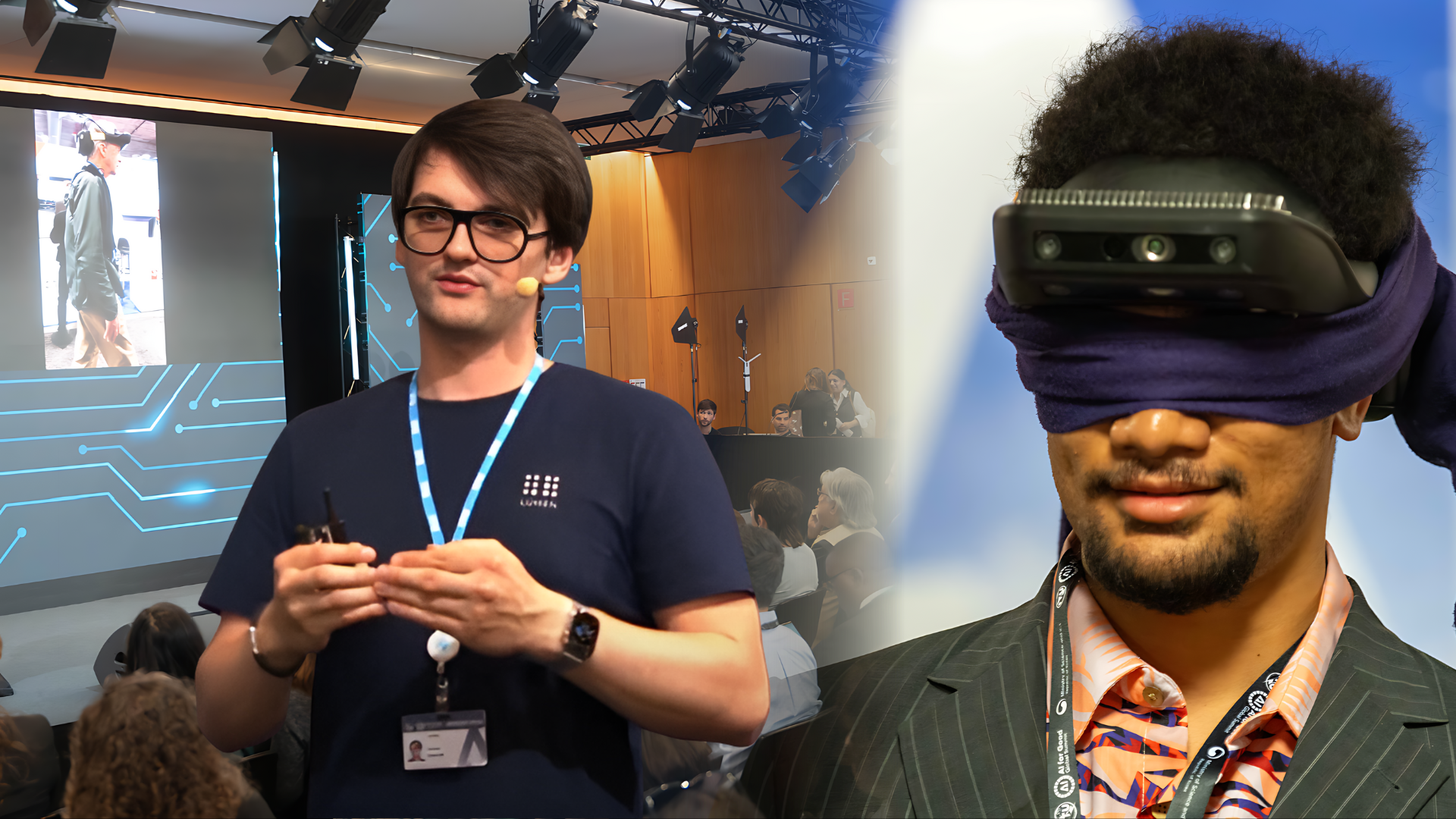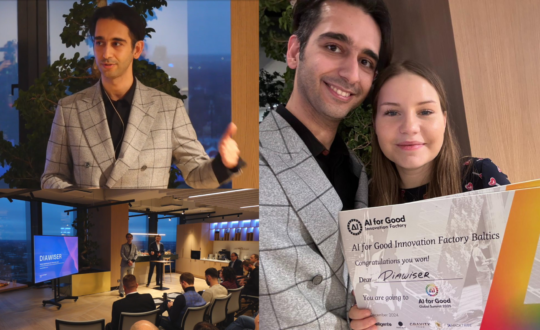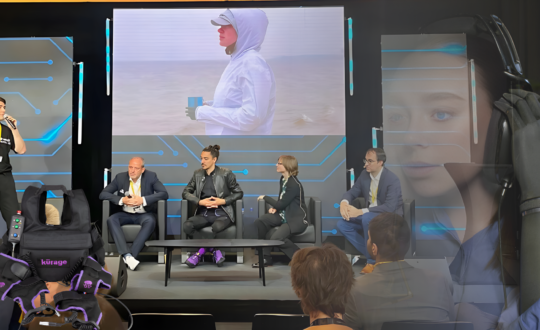In a world where over 2 billion people suffer from visual impairments, advancements in accessibility technology are not just beneficial, they are essential. At the 2024 AI for Good Global Summit, Cornel Amariei, CEO of .lumen, captivated the audience with a compelling narrative about his journey and the groundbreaking technology his company has developed to aid the visually impaired. His presentation centered on .lumen’s innovative smart glasses designed to provide unparalleled assistance to blind individuals, leveraging advanced AI and autonomous driving technology.
From Personal Experience to Innovative Solutions
Cornel Amariei’s motivation for creating assistive technology is deeply personal. Growing up in a family where everyone except himself had a disability, he understood firsthand the challenges faced by individuals with disabilities and the potential for technology to improve their lives.
His early experiences shaped his “determination to create solutions that are not only effective but also accessible. Despite a difficult upbringing with limited resources, Amariei emphasized:
“It doesn’t really matter where you come from, but it really matters what you do about it.”
The Genesis of .lumen
Three years ago, Amariei and his team embarked on a mission to revolutionize mobility aids for the visually impaired by founding .lumen. He highlighted the staggering number of people globally who suffer from visual impairment, emphasizing that traditional solutions like white canes and guide dogs have significant limitations. “A guide dog is above €200,000 and is not scalable,” he pointed out, noting the disparity between the number of guide dogs and the vast population in need.
The .lumen Glasses
.lumen’s flagship product, the smart glasses for the blind, aims to fill this gap by replicating and enhancing the capabilities of a guide dog. These glasses use advanced AI and autonomous driving technology to guide users by gently pulling their head to navigate obstacles and find destinations. Amariei described the functionality, stating:
“The glasses do exactly the same, even more than what a guide dog can do, but if a guide dog pulls your hand to guide you, we actually pull your head.”
He demonstrated the effectiveness of the glasses with a video showing a 74-year-old blind person using the device for the first time. The immediate success of the user highlighted the intuitive design and ease of use of the technology.
“In seconds, regardless of age, regardless of language barriers, this technology works,” Amariei remarked, underscoring the simplicity and reliability of the glasses.
Advanced Assistive Technology
The technology behind .lumen’s glasses is similar to that used in self-driving cars, scaled down to a wearable format.
“We built a self-driving car that doesn’t drive wheels on the ground; it actually drives people,” Amariei elaborated.
The glasses incorporate what .lumen calls ‘pedestrian autonomous driving’, a software enabling them to navigate and guide users safely through various environments without needing internet connectivity or pre-mapping.
Expanding Applications and Market Reach
While the primary focus of .lumen is to assist the visually impaired, Amariei revealed broader applications for their technology. The same AI and autonomous navigation systems can be applied to delivery robots and outdoor augmented reality, opening up significant market opportunities. “The same code that guides blind people can actually take a humanoid robot and deliver your pizza,” he noted, highlighting the versatility of the technology.
Market Readiness and Future Prospects
.lumen’s smart glasses are set to hit the international market as a Class I medical device early next year, with plans for FDA approval and broader market penetration to follow. Amariei underscored their goal of making the device eligible for reimbursement and subsidies to ensure wide accessibility.
“Our goal is to make it eligible for reimbursement, subsidies, health insurance, etc., so that as many people as possible can benefit from it,” he stated.
During the concluding Q&A session, Amariei addressed various aspects of the technology, including its integration with mapping systems, obstacle detection, and the reaction time of the device. He assured that the glasses are faster than human reaction, making them suitable for high-speed environments like crossing streets. Amariei also highlighted their strategic partnerships and robust patent portfolio, ensuring the technology’s protection and continued innovation.
Making Meaning, Not Money
Amariei ended his presentation with a powerful message that encapsulates the ethos of .lumen:
“Make meaning, not money.”
He believes that by focusing on truly helping people, financial success will naturally follow. This principle guides .lumen’s mission to create meaningful, impactful technology that transforms the lives of visually impaired individuals worldwide.
The presentation by Cornel Amariei at the AI for Good Global Summit showcased not only the remarkable advancements in assistive technology but also the profound human impact these innovations can achieve. Through determination, innovation, and a commitment to making a difference, .lumen is paving the way for a future where technology bridges the gap for those with visual impairments, enabling greater independence and quality of life.


 Register here
Register here















